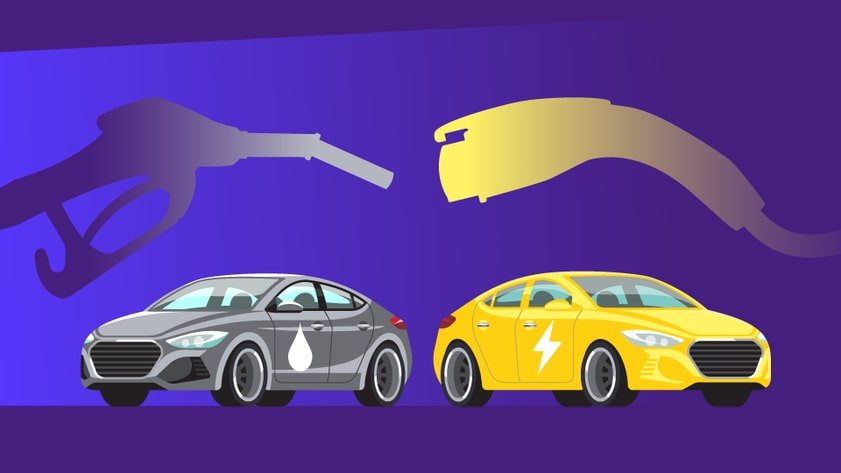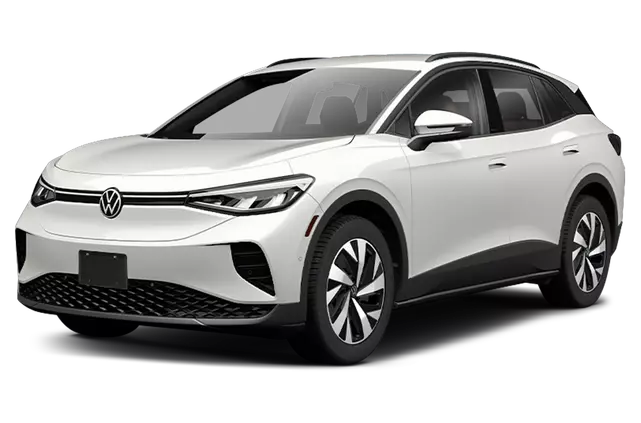Featured Image credit: evcharging
As the world shifts towards more sustainable forms of transportation, electric vehicles (EVs) have gained significant popularity. However, when choosing between a hybrid vehicle and a full EV, consumers often find themselves at a crossroads. Both options have their own set of advantages and disadvantages that need to be carefully considered before making a decision.
Here’s a look at some of the pros and cons of electric and hybrid vehicles.
Hybrid Vehicles: The Best of Both Worlds
Hybrid vehicles combine an internal combustion engine (ICE), electric motor, and battery pack. This combination allows for improved fuel efficiency and reduced emissions compared to conventional gas-powered cars. Here are some key advantages of hybrid vehicles:
1. Fuel Efficiency
One of the major benefits of hybrids is their excellent fuel economy. By utilizing both electricity and gasoline, hybrids can achieve significantly higher miles per gallon (MPG) than traditional ICE vehicles. This translates into lower fuel costs over time, making hybrids particularly attractive for those who do a lot of city driving or have long commutes.
2. Reduced Emissions
Hybrids produce fewer greenhouse gas emissions compared to conventional cars since they rely partially on electricity from the battery pack instead of solely relying on burning fossil fuels like gasoline or diesel. With increasing environmental concerns about air pollution and climate change, choosing a hybrid vehicle can contribute to reducing your carbon footprint.
3. Extended Range
Unlike pure EVs that rely entirely on their batteries for power, hybrids offer extended-range capabilities by incorporating an ICE component alongside the electric motor/battery system. This means that even if you run out of charge in your battery pack while driving, you can continue using gasoline until you reach the next charging station or refueling point.
Drawbacks
While hybrids bring several advantages to the table, they also have some drawbacks to consider:
1. Limited Electric-Only Range
Although hybrids can run on electricity alone for short distances, their electric-only range is typically limited compared to full EVs. This means a hybrid may not be the most suitable choice if you primarily drive long distances or rely heavily on electric power.
2. Less Charging Infrastructure Support
As EV charging infrastructure continues to expand globally, hybrids tend to have less support in dedicated charging stations than full EVs. While you can still charge the battery pack in your hybrid at home using a standard electrical outlet, finding public charging stations specifically designed for hybrids might be more challenging.
Image credit: d-risk
Full EV Vehicles: Embracing the Future of Transportation
Full electric vehicles (EVs) are powered entirely by an electric motor and rely solely on rechargeable batteries for propulsion. Here are some advantages of going all-electric:
1. Zero Emissions
Arguably one of the biggest advantages of driving an EV is zero tailpipe emissions. By eliminating reliance on fossil fuels altogether, full EVs contribute significantly towards reducing air pollution and combating climate change.
2. Lower Operating Costs
While purchasing an EV may require a higher upfront investment than traditional cars or hybrids, they generally come with lower operating costs over time due to cheaper electricity than gasoline or diesel fuel costs. Additionally, maintenance requirements for full EVs are often simpler since they have fewer moving parts and do not require oil changes or other regular ICE-related services.
3. Increasing Charging Infrastructure
With governments and private companies investing heavily in building a robust network of public charging stations worldwide, access to convenient recharging options is becoming increasingly widespread for full EV owners.
Drawbacks
While full EVs offer numerous benefits, they also have some drawbacks that should be considered:
1. Limited Range and Longer Refueling Time
Compared to hybrids or gasoline-powered vehicles, full EVs generally have a more limited range on a single charge. Although the technology is continuously improving, finding charging stations for longer road trips or remote areas may still be challenging. Additionally, recharging an EV takes significantly longer than refueling a traditional car with gasoline.
2. Battery Degradation and Replacement Costs
The lifespan of electric vehicle batteries can vary depending on various factors, such as usage patterns and environmental conditions. Over time, the battery capacity may degrade, resulting in reduced range and performance. Eventually, the battery will need to be replaced at an additional cost.
3. Initial Cost Barrier
Full EVs tend to have higher upfront costs than hybrid or conventional vehicles due to the expensive battery technology involved in their production. While government incentives and increasing competition are helping lower prices over time, purchasing an electric vehicle can still pose a financial barrier for some consumers.
Making the Decision: Hybrid or Full EV?
When deciding between a hybrid vehicle or going all-in with a full EV, there are several factors you should consider:
1. Driving Habits:
Assess your driving habits and typical commute distance. If you primarily drive short distances within city limits or have access to frequent charging opportunities throughout your day (at home/work), then a full EV might suit your needs perfectly.
2. Range Requirements:
If you frequently embark on long road trips where public charging infrastructure might not be readily available, opting for a hybrid with extended-range capabilities could provide peace of mind.
3. Environmental Impact:
Consider your personal commitment towards reducing emissions and contributing positively towards sustainability efforts.
4. Budget:
Evaluate both short-term affordability (purchase price) as well as long-term operating costs, including fuel/electricity expenses, maintenance, and potential battery replacement costs.
Ultimately, choosing between a hybrid or full EV depends on personal preferences and individual circumstances. Both options have unique advantages and disadvantages, so weighing them against your specific needs before making a final choice is important.
So whether you go hybrid or embrace the fully electric revolution, every mile counts in building a sustainable world for generations to come. The road ahead is filled with exciting possibilities.


